As feminists of the global South, we join the process of organizing and building of the World Social Forum of Transformative Economies (#FSMET2020) that will take place in Barcelona, 25 to 28 June 2020.
This is an open space that is in its very process of planning and internationalization where we come together with different organizations, networks, collectives, agroecology and food sovereignty movements, popular education movements, feminists, social economy, popular economy, and self-organized movements, and movements advocating for the commons (natural, urban and digital).
June 2020 will be the moment of convergence for groups, collectives, and people from the North and South, who are promoting experiences of transformation of the economy while generating alternatives and transition proposals to face the extractivist models that are increasing the exploitation and destruction of natural resources and the planet. The interesting thing about this call is that it aims to go beyond the Forum in June, “what matters most to the international network is the process of building the space prior and after the FSMET’’.
How the Thematic Forum was born
The FSMET is a seed that is part of the World Social Forum (WSF), that was born in 2001 in Porto Alegre, when social movements and organizations of the civil society gathered around their common challenges and proposed alternatives to the neoliberal economic globalization, represented by the World Economic Forum in Davos, Switzerland.
The last WSF took place in Salvador de Bahía –Brazil- in 2018, where many of us organized workshops to assess the Women’s Strike on March 8, the activities against the G20 agenda and the Big Global Women’s Assembly that we called “Marielle Franco”. As feminists, we are sustaining and promoting the networks and the spaces that emerge as part of the WSF and its thematic versions, like the most recent experience in November 2018 at the WSF on Migration in México.
The basis of the FSMET started growing in the previous WSF in Montreal (Canada, 2016), where the proposal was presented in an Assembly of Convergence. This proposal was later approved at the meeting of the International Council in 2018, and the city of Barcelona was proclaimed as the venue for the event, considering the history of Catalunya in the social struggles, including the rich experiences around proposals of solidary economy and cooperatives, that represents 2.8 % of the businesses in the city, an 8% of the working population and 7% of the GIP of the city.
Is in that moment that the process of convergence at local and international level started, this included all the previously mentioned initiatives, while convoking ‘‘the movements and forms of understanding the economy that have a common objective of building a real alternative of transformation of the current economic and financial capitalist system’’, as affirmed in the initial documents.
The first meeting of exploration and articulation, took place in April in Barcelona, where more than 260 experiences, networks, and initiatives of the economy came together: agroecology and food sovereignty, feminist economies, pro commons, cooperatives for work, ethical finances and fair trade, cooperatives for housing, community, and social economies.
The meeting resulted in the mapping and sharing of transformative actions of the economy, and the challenging action of establishing education and research practices that include an ant patriarchal, de-colonizing, anti-anticapitalistic framing. The emerging proposal was that “the caring of the planet and the dignity of life need to be at the centre of the educational system, with a holistic and solidarity approach, that is sustained along the cycles of life and not just linked to the initial stages of life in the infancy”. Furthermore, there was a session dedicated to the co-construction of public policies where the participants agreed on the need to move towards the sustainability of life and to create spaces to favor participation, as well as the establishment of coherent and transversal policies in the areas of education, housing, and trade.
Towards July, the FSMET defined the Coordination Committee in the meeting that was celebrated on 18 and 19 July in Barcelona with the representation of international networks of the transformative economies. The new Committee, substitutes and amplifies the former facilitation group (formed by REAS, RIPESS, and XES), and it is formed by networks and organizations and has the task of outreaching other networks and movements while considering democratic and organizational processes and the participation of all regions of the world.
The meeting of Feminisms
In that first meeting of April 2019, we raised the need to have the feminist analysis on the economies permeating all the spaces and not just to be relegated to a thematic group or a separate axis of work, since all dimensions of the economies need to be feminists in order to be truly transformative. In this dialogue, we defined transversal areas of work; as stated by the women from Africa, who visualize the paths of the convergence, among “feminist, climate justice, pacific (…) as a common struggle since our planet is giving up and seriously being damaged”, said Samantha Hargraves from WoMin, a network that works against the extractivist industry in South Africa and promotes feminist economy projects
In this space, we started coming together with diverse feminists, educational proposals and collectives that are promoting transformative experiences. Since the FSMET is an open and participatory process, we are weaving networks that help us outreach other representatives of feminist, LGBT+, migrant, popular economy, afrodescendant and black, the Okupa movement, cooperatives, recovered businesses, peasants and indigenous groups.
For DAWN, this is a major opportunity to put forward workshops, training spaces, assemblies and small talks departing from concrete experiences where feminist views come on board. The itinerary is being constructed in an intergenerational, interregional and intersectional dialogue. These economic alternatives that have emerged are in dialogue with the feminist analysis of the systemic crisis we live in.
How to participate
There are different commissions that are aimed at shaping this diverse programme. Such commissions are in contact with the Coordination Committee and will have technical support:
– Communication and extension
-Logistics (based in Barcelona)
- -Welcome and caring
-Contents
- -Building a collective project
- -Exchanging and mapping experiences
- -activities to continue with the Forum
-Methodology and facilitation
-Economy (money + human resources + management of collective issues)
-Social creativity and arts
-International mobilization and promotion
– Virtual participation
You can read more about these different ways of participating here.
The FSMET is organizing a series of online meetings “Towards Social Forum on Transformative Economies (FSMET)”, that are open to all the actors that are involved in the economic transformation, at local and international level.
The last meeting took place on 17 October, for more information on this and future meetings please visit: https://transformadora.org/en/international-online-meetings-iom-towards-world-social-forum-transformative-economies-wsfte
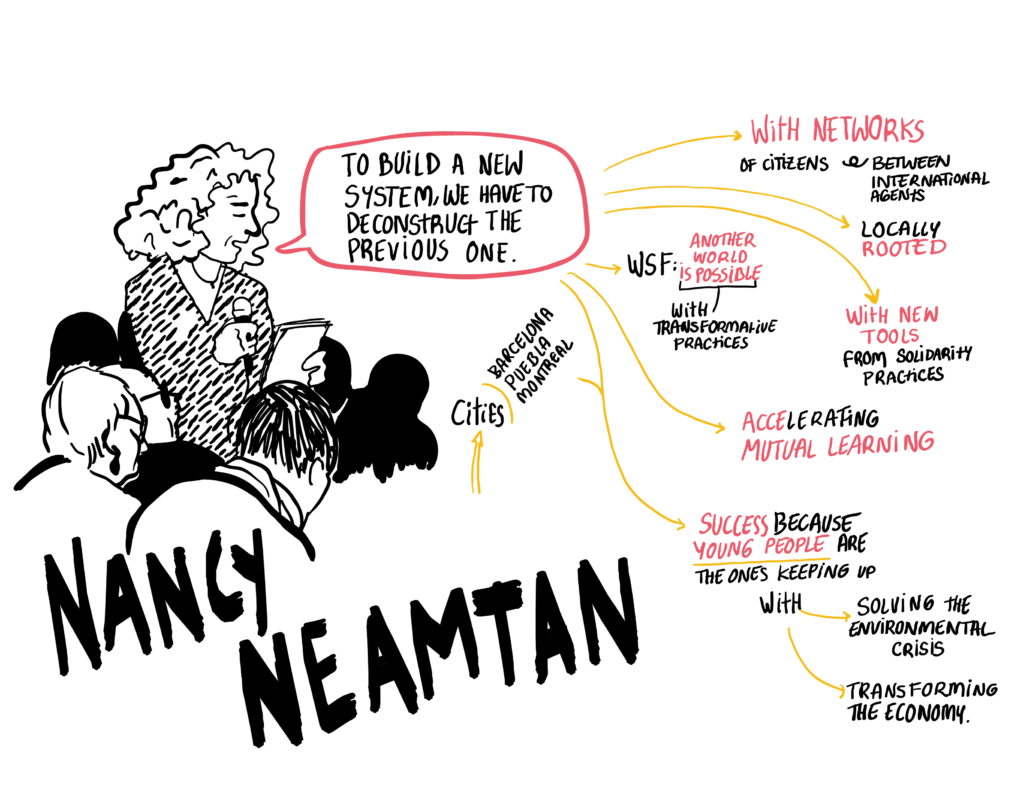
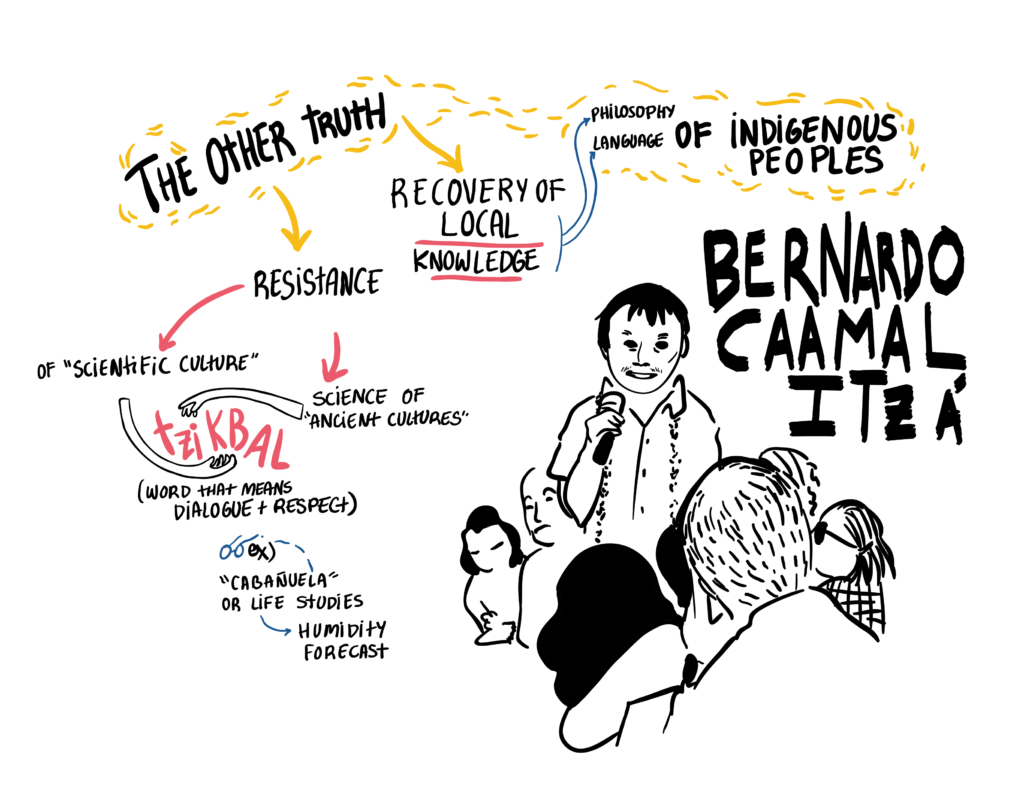
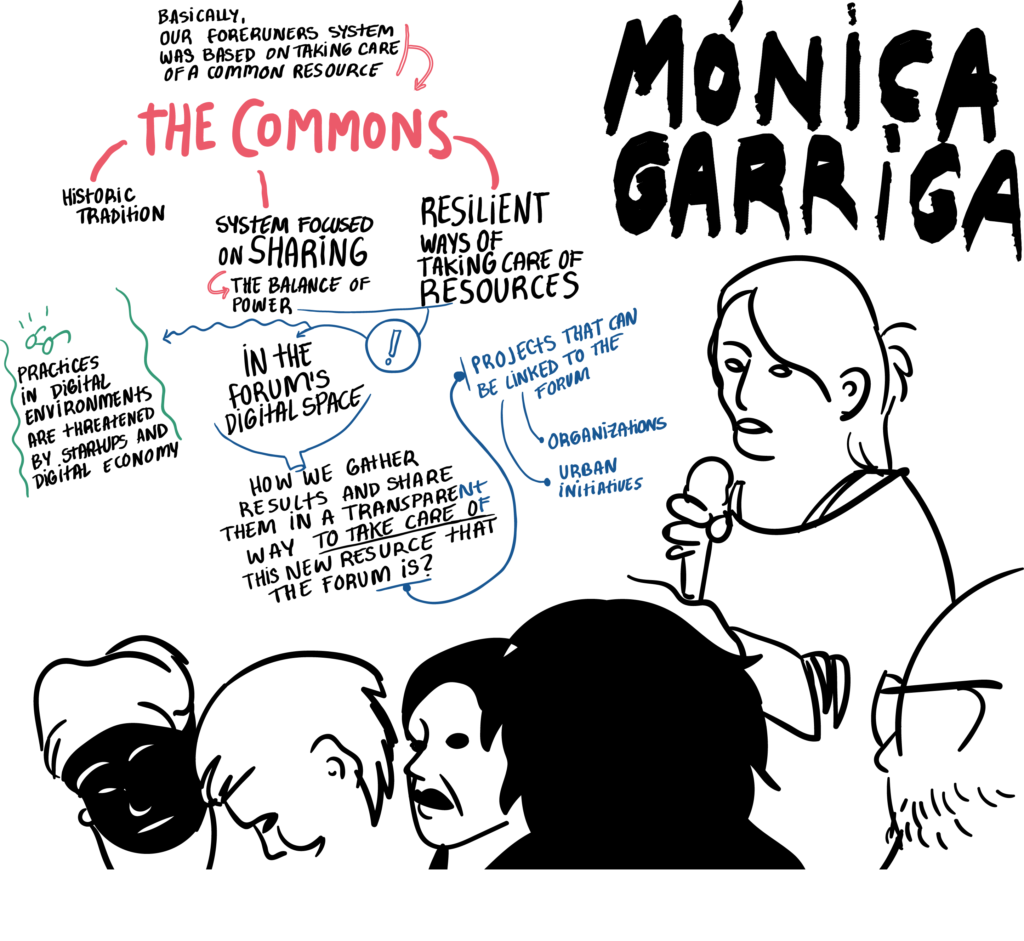
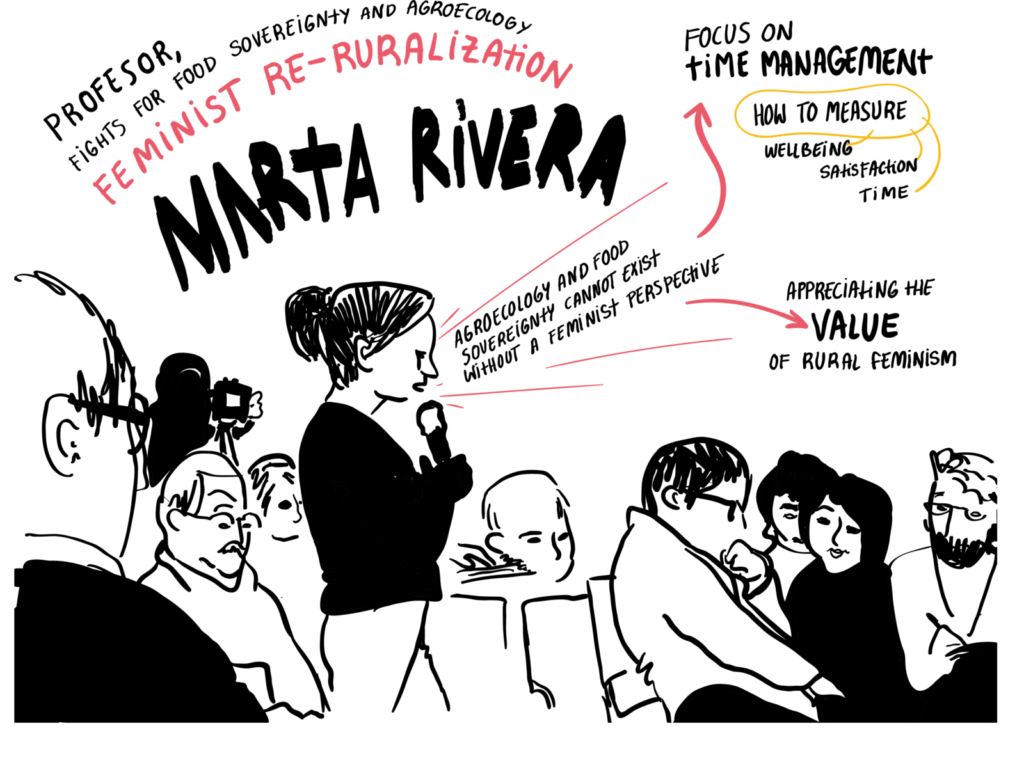
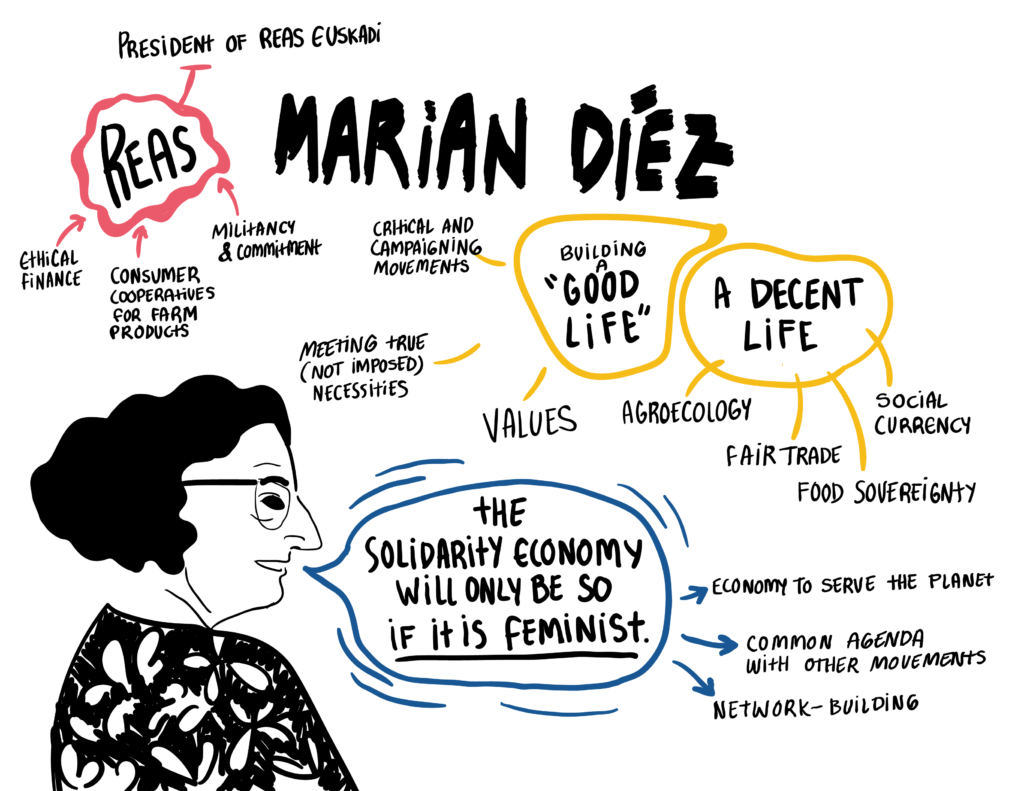
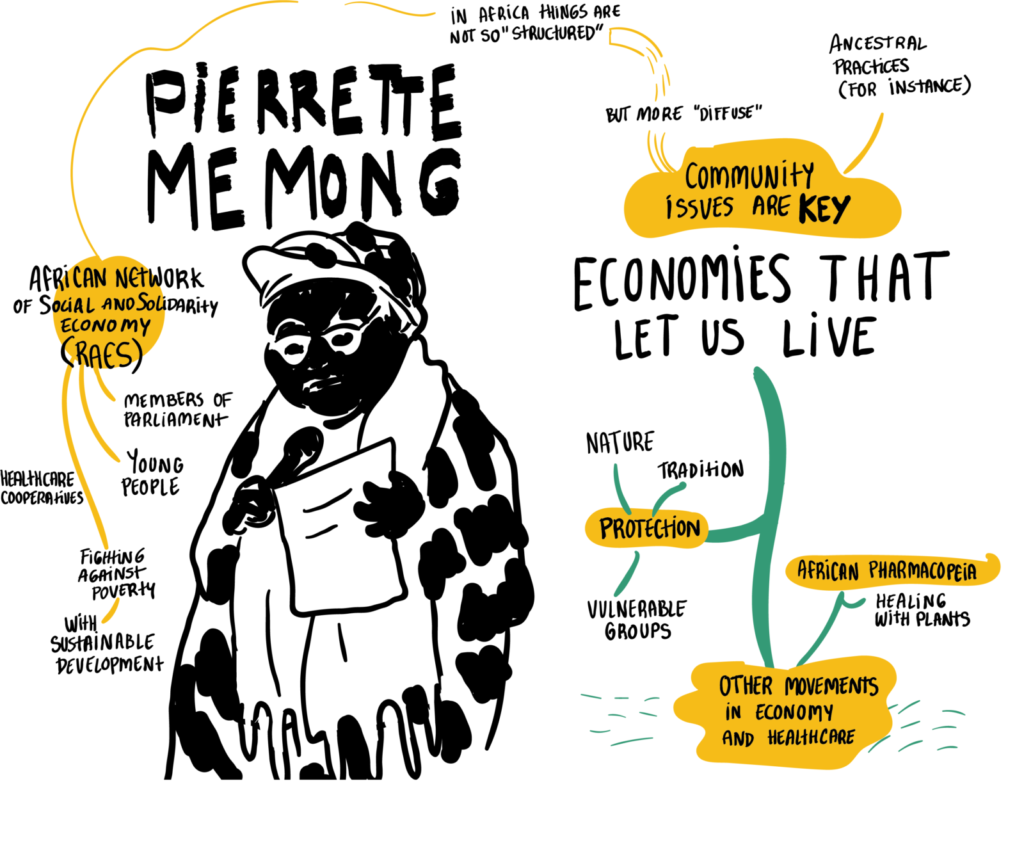
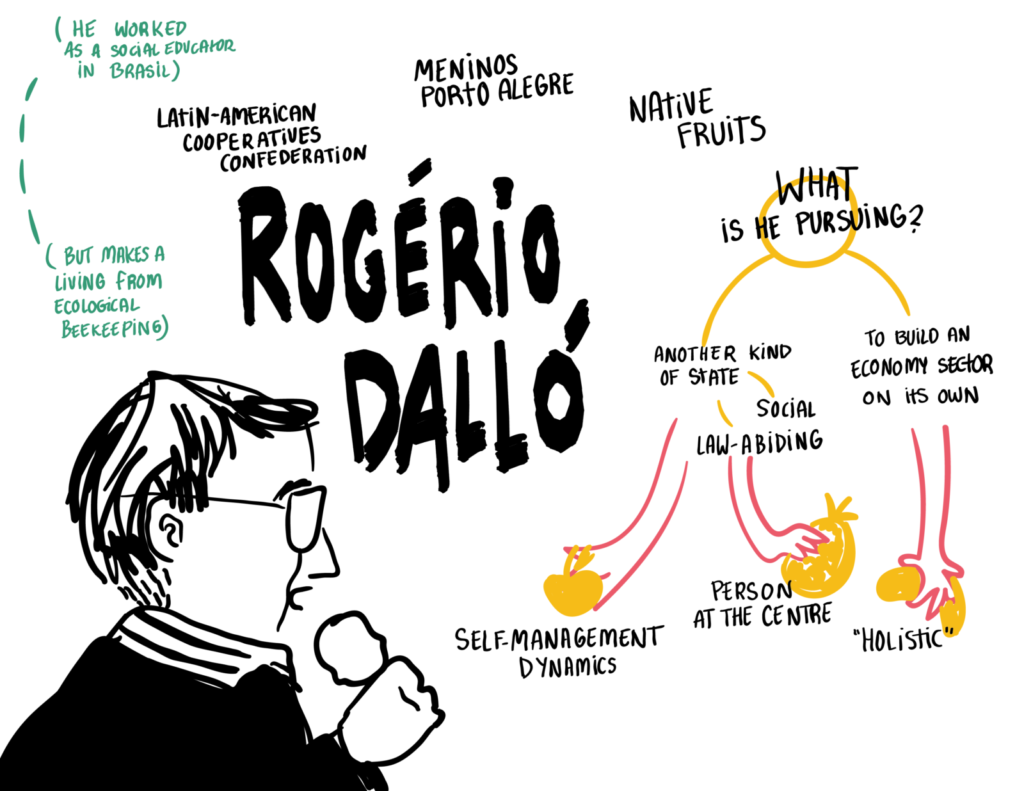
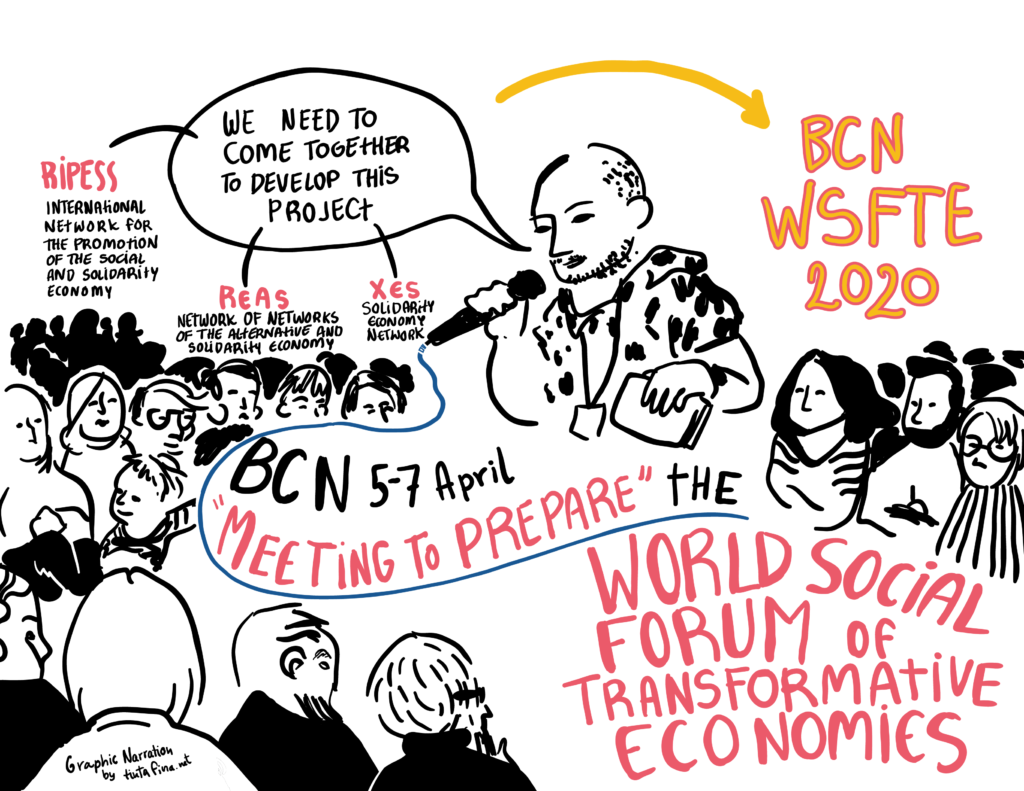

Artist: https://tintafina.net/ / https://www.instagram.com/tintafina/
